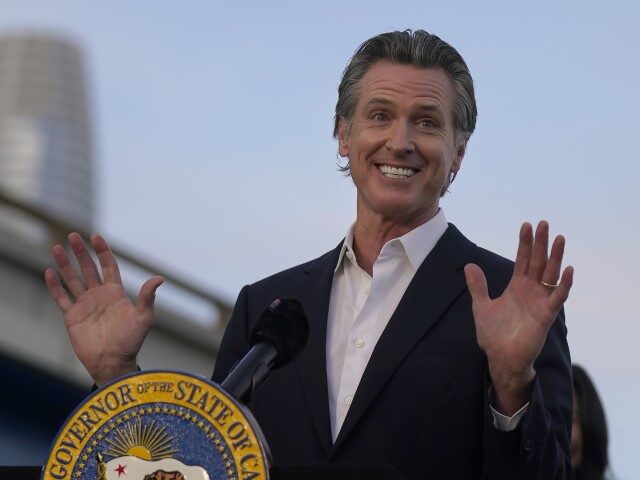California fast food franchise owners are being forced to cut their employees’ hours following Gov. Gavin Newsom’s (D) $20 minimum wage law, which went into effect in April.
Lawrence Cheng, whose family owns several Wendy’s restaurants in southern California, has had to fill in behind the register to make up for the dramatic cuts, he told the Associated Press.
While he used to have “nearly a dozen employees” working the afternoon shift at his Fountain Valley location, he is reportedly down to just seven per shift.
“We kind of just cut where we can,” Cheng told the outlet. “I schedule one less person, and then I come in for that time that I didn’t schedule and I work that hour.”
Before Newsom’s mandate, he was paying his 250 workers $16 an hour. Now, the only way he can keep up with paying them $20 is to simply have them work fewer hours.
Cheng also said he had to raise menu prices by about 8 percent three months before the law went into effect to offset the increased costs.
In addition to raising the minimum wage for fast food workers, Assembly Bill 1228 also established the California Fast Food Council, a group of bureaucrats who have the power to continually raise the minimum wage even higher.
“I’ve been in the business for 25 years and two different brands and I never had to increase the amount of pricing that I did this past time in April,” said Juancarlos Chacon, the owner of nine Los Angeles Jersey Mike’s locations.
Due to the price increases, he said he noticed that customers are now less likely to purchase a drink or sides with their sandwiches.
Like Cheng, Chacon has also been forced to slice the number of hours he gives his employees.
Unlike Cheng, he has unfortunately had to let go around 20 of his 165 employees.
“I’m very nervous,” the Jersey Mike’s owner said of the major wage increase’s impact.
Jot Condie, president and CEO of the California Restaurant Association, said businesses have been forced to make these tough decisions due to the costs the law imposes on them.
“When labor costs jump more than 25 percent overnight, any restaurant business with already-thin margins will be forced to reduce expenses elsewhere,” Condie told the AP. “They don’t have a lot of options beyond increasing prices, reducing hours of operation, or scaling back the size of their workforce.”
By June, approximately 10,000 California fast food jobs had been cut since the minimum wage went up, the California Business and Industrial Alliance (CABIA) said.
“California businesses have been under total attack and total assault for years,” CABIA founder and president Tom Manzo told Fox Business. “It’s just another law that puts businesses in further jeopardy.”

COMMENTS
Please let us know if you're having issues with commenting.